FACTSHEET
MASTER’SPROGRAMME
INTERNATIONAL RELATIONS IN HISTORICAL PERSPECTIVE
Dear students, Welcome to Utrecht University!
Congratulations on having been selected for the MA in International Relations in Historical Perspective for the academic year 2023/2024. This factsheet is intended to help you get acquainted with the MA programme. It includes information about the courses that you can follow during your studies, details about the members of staff you will be working with over the course of your MA, as well as some additional details regarding some of the services available to students at Utrecht University.
This coming September, you will be starting the MA programme together with many other students from all over the globe who are as eager as you to learn more about international history and international politics. We will organize exclusive meetings and events throughout the academic year, in addition to the usual courses of the programme, and we hope that this unique mix of lectures, seminars and events help you to build a strong student community and act as a source of inspiration, both during and after your studies
This Factsheet is intended as a guide to help you find your way around the MA in International Relations in Historical Perspective. It includes information on the programme, as well as the information regarding some of the services available to you at Utrecht University.
We do hope you thoroughly enjoy getting to know the programme and each other, and we look forward to working with you during your time here studying International Relations in Historical Perspective.
 dr. Stefanie Massink
dr. Stefanie Massink
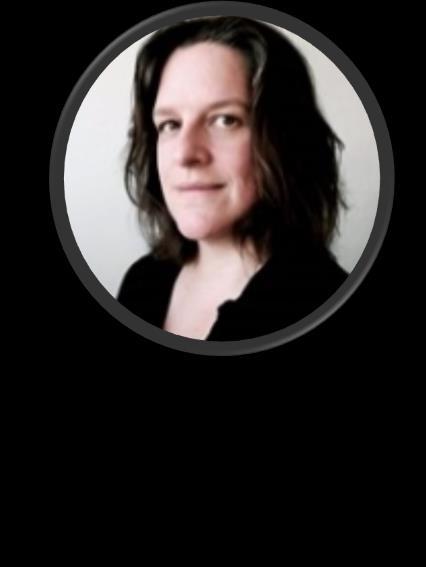 Paschalis Pechlivanis Programme Coordinators MA in International Relations in Historical Perspective
Paschalis Pechlivanis Programme Coordinators MA in International Relations in Historical Perspective
CHECK OUT OUR WEBSITE
and dr.
CORE TEAM OF LECTURERS
■ ■ ■
Expertise: Cold War, European integration; energy politics; policy-makers and public engagement


■ ■ ■
DR . LILIANE STADLER
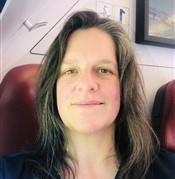
Expertise: Neutral states, multilateral diplomacy, conflict resolution, late Cold War, early post-cold War
■ ■ ■
D R . S TEFANIE M ASSINK
Expertise: Dutch foreign policy, Spain in the world, international relations in twentieth century Europe


■ ■ ■
Expertise: Memory; Global Cold war; German history; Middle East; Reparations; International Relations
■ ■ ■
D R . P ETER M ALCONTENT
Expertise: Human rights, development cooperation, transitional justice, Arab-Israeli conflict


■ ■ ■
D R C ORINA M AVRODIN
Expertise: Modern European History, Global South, Global Cold War
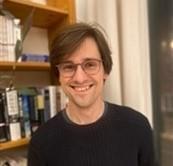
■ ■ ■
Expertise: Human rights, humanitarianism, refugees, Cold War, decolonization, globalization
■ ■ ■
D R . O ZAN O ZAVCI
Expertise: Imperial history, history of security, intellectual history, Euro-Middle Eastern relations

■ ■ ■
Expertise: Cold War, US Foreign Policy, post-1945 European and Balkan history
DR . M ARLOES B EERS
DR . L ORENA D E V ITA
DR . B ASTIAAN BOUWMAN
D R P ASCHALIS P ECHLIVANIS
D R J OEP S CHENK
Expertise: Political and Economic History of Globalization in the 19th and 20th Century; Business History; Transnational History
D R S IMEON P ARAVANTES
Expertise: American History and Diplomacy during the Early Cold War, Anglo-American relations, Regional Groupings, Modern Greece and European Integration
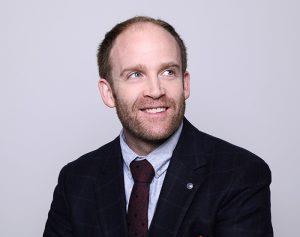
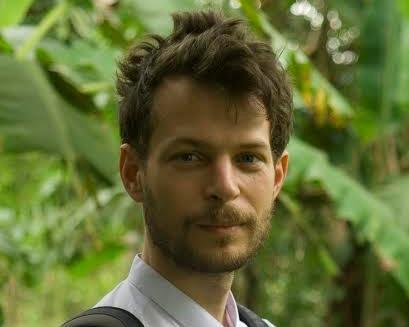
■ ■ ■
■ ■ ■
STUDY ADVISORS
Facing issues with your studies? The study advisors are there to help and support you to successfully complete your degree. They can act as confidential counsellors, advise on issues regarding illness and special circumstances and, together with you, look at the possibility to cope with the studies while dealing with disabilities or chronic illnesses. They can also help with specific arrangements and procedures, such as complaints, objections and appeals. You can find more information on the study advisors on the university website, at: https://students.uu.nl/en/hum/international-relations-in-historical-perspective/contact/studyadvisor or click on their names below to see who to contact if you have questions about your programme.

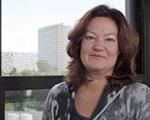
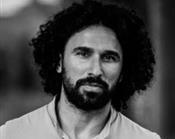
■
■
■
■ ■ E VELIEN H AZEWINKEL
■ ■ M IRJAM
VAN D EUTEKOM
■ ■
M AJED Z AIN
OUR EDUCATIONAL PHILOSOPHY:
B RIDGING THEORY AND PRACTICE , AND CONNECTING HISTORY WITH THE PRESENT
THIS PROGRAMME
Political theory is an important tool in the analysis of international questions. In order to fully understand those issues, however, we strongly believe in the importance of adopting a broader historical perspective - and while history never repeats itself, or at least not exactly, one can learn a great deal from it. By bridging the fields of history and international relations, the MA in International Relations in Historical Perspective offers an in-depth insight into both worlds.
This emphasis on blending international history and international relations theory makes this Master’s programme unique in the Netherlands and beyond. Through this approach, you will learn to place recent international developments in a broader historical perspective. At Utrecht University, we strongly believe that it is only through an in-depth knowledge of the past that the complexities of our times can be unravelled.
Our programme includes various opportunities to bring the theory into practice. The first part of our programme consists of a number of required taught courses aimed at increasing your knowledge and skills on crucial issues in international politics and history. During the second part of the programme it is up to you to decide what you want to do with your knowledge and skills.
You can either follow a Practice Track (internship & thesis), finding an internship that specifically prepares you for a career in inter alia policy making, journalism or consultancy (and beyond); or you can follow the Research Track (research tutorial & research thesis) which will prepare you for a career in an academic environment; or you can join our Applied Research Track, in which you will conduct research to support a concrete research project of the History of International Relations group.
Do have a look at our website for more information about your programme, ranging from an overview of courses to possible internships and thesis examples.
COURSE PLANNER: You will find more information on this programme’s courses in the Course Planner: Course Planner IRHP
LEARNING OBJECTIVES
The MA in International Relations in Historical Perspective aims to

✓ Increase your knowledge about the history of international relations, especially of the 20th and 21st centuries;
✓ Turn you into an expert in at least one of the research areas central to the MA program:
a) the history of war and violence, including crucial security issues such as terrorism, humanitarian interventions and intelligence;
b) the history of European interstate relations, among which the European integration process;

c) the history of global governance, including the environment in international politics
✓ Strengthen your ability to understand and discuss relevant international political issues and to study them independently;
✓ Sharpen your research skills, especially by pursuing research into historical sources and drawing from the fields of international relations and political theory.
CURRICULUM
The first part of our programme consists of a number of required taught modules and courses aimed at increasing your knowledge and skills on crucial issues in international politics and international history, passing from a BA to an advanced MA level. During the second part of the programme, starting from February, it is up to you to decide what you want to do with your knowledge and skills. This is how the academic year will look like, at a glance:
The Modern World and the States System (5 EC)
Research Seminar Part 1
International Relations in Practice (5 EC)
Research Seminar Part 2 (together 10 EC)
2 Elective Courses (2 x 5 EC)
Practice Track: Internship and/or Thesis (15 EC)
Research Track: Research Tutorial (10 EC)
Applied Research Track UU-based Project and/or Thesis (15 EC)
Practice Track: Internship and/or Thesis (15 EC)
Research Track: Research Thesis (20 EC)
Applied Research Track UU-based Project and/or Thesis (15 EC)
Semester 1
Semester 2
Block 1
Block 2
Block 3
Block 4
THIS MASTER’S PROGRAMME AND OUR SOCIETY
The MA in International Relations in Historical Perspective addresses how states and societies respond to global challenges of social, economic, and political change. It is underpinned by a unique approach which is explicitly international, interdisciplinary and applied. The structure of the degree is intended to ensure a good balance between international history and international relations. The theoretical concepts that you will encounter in the first part of our programme will give you the analytical tools to understand and analyse international relations in both the past and present. The second part of the year focuses on various skills-related courses and internship opportunities that will encourage you to apply this knowledge in a practical way. Being able to select the right information and use it as a foundation to write a clear commentary that offers creative solutions to complex problems is an art in and of itself. The International Relations in Historical Perspective programme will help you to master that art.
This programme primarily prepares you for a job in (inter)national governments, think tanks, NGOs and international organizations within the area of international politics. However, businesses and local governments are increasingly asking for people with analytical skills and the ability to translate those skills into useful advice. Over the years we built an impressive alumni network, with job occupations ranging from The Hague and Brussels to Washington DC and Vienna.
Of course, there is no better way to show the relationship between our programme and the society beyond the ‘academic ivory tower’ than by introducing you to some of our alumni:
Mart Teunissen is Policy advisor on Transport & Tourism at the VVD

For me, the Master’s programme was mostly helpful in developing the analytical skills that are essential in the politically sensitive environment in which I work. Every day I have to prioritize my work and understand which subjects are important and which are less important. Then it is vital to understand not only what is topical in the Netherlands, but throughout Europe. It is the analytical skill of prioritizing information that is needed to succeed in the ‘Brussels bubble’.
Rosemarie Jorritsma is Administrative Policy Advisor at the municipal government of The Hague
During the Master's programme, it was also often pointed out to me that it is important to ask follow-up questions, to investigate and to view a question from multiple perspectives. This lesson and my knowledge of diplomacy and governmental relations are things I learnt during the Master’s programme that I now use in my work.
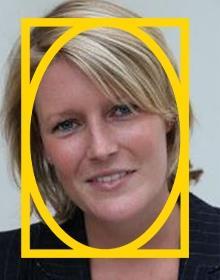
IMPORTANT FOR HUMANITIES STUDENTS
New students students.uu.nl/hum-new Practical information for new students at the Humanities faculty.
Academic calendar students.uu.nl/hum-calendar
Information about days off, course registrations and change-of-enrolment days.
UU online



Information about our online systems and how to log in: students.uu.nl/hum-online In need of a manual? IT manuals: https://manuals.uu.nl/en
REGISTRATION, PROCEDURES, INTERNSHIP INFO
Student Information Desk Humanities students.uu.nl/hum-contact
Programme related matters, such as
• course registration
• course schedules
• study results & study progress (Osiris)
• graduation
Student Services students.uu.nl/en/contact/student-services
Studying at Utrecht University in general:
• registration as a UU student

• tuition fees
• elite athletes
• disability or chronic illness
Internship coordinator students.uu.nl/hum-internshipcoordinator






Information about:
• guidelines and procedures
• internship placements
QUESTIONS ABOUT ENTERING THE JOB MARKET
Career Services students.uu.nl/hum-careerservices
Advice on getting a job after graduation through workshops, CV check-up, and coaching. Your programme coordinator will inform you about programme-specific events.
NEED EXTRA HELP?
Study advisor:
students.uu.nl/hum-studyadvisor
Student psychologist: students.uu.nl/psychologist
Workshops: Skills Lab: students.uu.nl/en-skillslab
THINKING OF GOING ABROAD ?
International office Humanities: students.uu.nl/hum-io
OTHER FACILITIES
University Library: students.uu.nl/hum-library
Olympos sports centre: olympos.nl/en-us/home.aspx
Parnassos cultural centre: uu.nl/en/parnassos
FACT! You can find your grades, student card and timetable in the MyUU portal and the MyUU app: students.uu.nl/en/myuu and students.uu.nl/en/ myuu-app
FACT! In the second semester, you will have to register in Osiris for courses you wish to attend. If you want to switch courses, you can do so on the change-ofenrolment days before the start of the relevant block.
FACT! Deadlines are always listed in the course syllabus, which your lecturer will provide approximately 2 weeks prior to the course’s ’start.
FACT! If you need more information about specific aspects of your programme, e.g. internships or thesis, please see the Curriculum page on the programme website via students.uu.nl/hum.
FACT! Check students. uu.nl/hum-studentlife for information about living, jobs, sports and leisure in Utrecht!
© June 2023. Utrecht University, Faculty of Humanities. Every effort has been made to ensure that the information presented in this factsheet is correct and up to date. Utrecht University cannot be held liable for any false, inaccurate, or incomplete information presented herein.
 dr. Stefanie Massink
dr. Stefanie Massink
 Paschalis Pechlivanis Programme Coordinators MA in International Relations in Historical Perspective
Paschalis Pechlivanis Programme Coordinators MA in International Relations in Historical Perspective





















